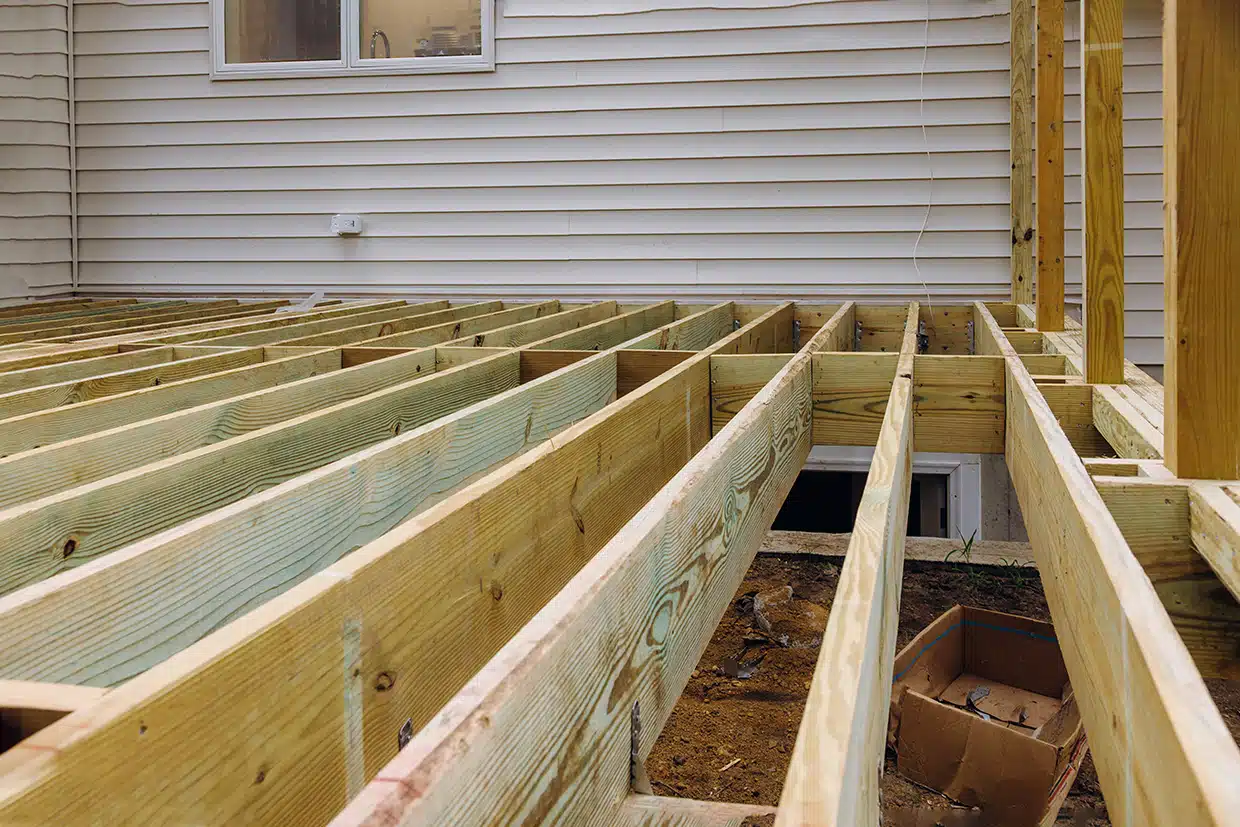Creating an inviting outdoor space starts with selecting the right decking material. With an array of options available, understanding the unique characteristics and benefits of each material can help you make an informed decision that suits your style and maintenance preferences.
1. Wood Decking:
Timeless Charm and Versatility
Wood has long been a popular choice for decking due to its natural aesthetics and versatility. Varieties such as pressure-treated pine, cedar, redwood, and tropical hardwoods offer distinct looks and price ranges. While wood provides a classic appeal, it requires regular maintenance to uphold its appearance and structural integrity.
Pros:
- Natural Beauty: Warm and inviting aesthetics.
- Versatility: Can be stained or painted to match preferences.
- Variety: Different wood species offer various grains and colors.
Cons:
- High Maintenance: Regular sealing, staining, and repairs are essential.
- Durability Concerns: Prone to rot, warping, and insect damage without proper care.
2. Composite Decking:
Durability with Minimal Upkeep
Composite decking, a blend of wood fibers and recycled plastic, offers the look of wood without the extensive maintenance requirements. It has gained popularity for its durability and resistance to fading, staining, and insects.
Pros:
- Low Maintenance: No need for staining or sealing, occasional cleaning suffices.
- Durability: Resistant to rot, fading, and insect damage.
- Aesthetics: Wide range of colors and textures available.
Cons:
- Higher Initial Cost: More expensive upfront compared to wood.
- Limited Refinishing: Not as easy to refinish or repair compared to wood.
3. PVC Decking:
Weather-Resistant and Low Maintenance
Polyvinyl chloride (PVC) decking, entirely synthetic, stands out for its exceptional resistance to moisture, mold, and fading. It's a low-maintenance option, particularly suitable for areas with extreme climates.
Pros:
- Weather Resistance: Excellent for humid or waterfront locations.
- Low Maintenance: No staining or sealing required.
- Durability: Highly resistant to moisture and fading.
Cons:
- Higher Initial Cost: More expensive upfront compared to wood.
- Limited Color Options: Fewer choices compared to composite decking.
- Environmental Impact: Manufacturing process might be less eco-friendly.
4. Aluminum Decking:
Sleek, Lightweight, and Durable
Aluminum decking offers a modern, sleek appearance and is known for its lightweight nature and resistance to rust, insects, and rot. It's an excellent choice for those seeking a contemporary outdoor aesthetic.
Pros:
- Durability: Resistant to rust, insects, and rot.
- Low Maintenance: Minimal upkeep required.
- Modern Aesthetic: Sleek and contemporary appeal.
Cons:
- Higher Initial Cost: More expensive upfront compared to wood.
- Limited Aesthetic Options: Not as versatile in appearance compared to wood or composite.

